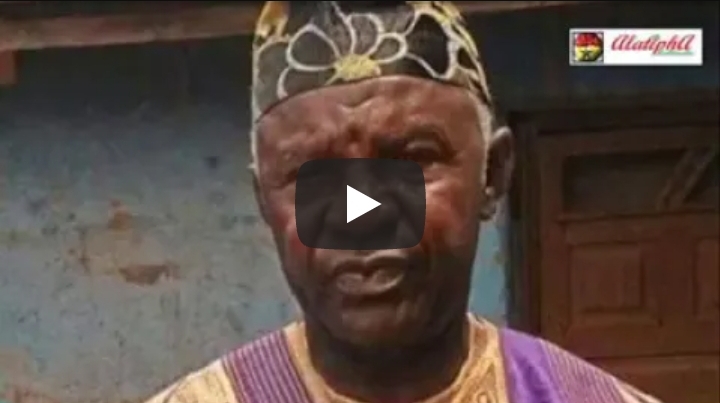Doctor’s Hamattan survival tips
Today I’m going to tell you about something. This thing which makes one say “turn on the A/C, it’s too hot” only for the other to say “turn it off, it’s too dry”. This thing which makes my doors creak and my books bend. This thing for which my fog lights are rendered useless. This thing which makes you sweat and makes you cold at the same time.
This thing which makes you wake up breathing through your mouth only for your nostrils to dry up to bleeding point by midday. This thing which makes highlands of Aburi and the students at Adisadel loath the morning shower. This thing which makes you think twice about smiling broadly. This thing, this lousy weather, called harmattan.
The term Harmattan apparently originated from an Arabic word Haram, which literally means the evil thing. And I guess that is a fair description. Some also say it is an Akan cognate, but the root word haramata doesn’t convey so much meaning to me.
This so called north-easterly trade winds bring in a lot of dust, and very little trade. It produces desert-like conditions as it drags in sand particles from the Sahara. The temperatures are generally low, and it can get as cold as 90 C in the mornings. However, afternoon temperatures can go past 30 °C, while the relative humidity drops very low (below 10%), producing a dry, prickly, uncomfortable kind of heat.
The Akan expression “ƆpƐ akye me” (loosely translated “I’ve been gripped by the harmattan”) is very apt. It grips you like a stiffened piece of fabric, a brittle sheet of metal that will fall apart at the slightest agitation. The parts of the body that suffer most are the skin, the eyes, the nostrils and respiratory system as a whole.
The skin becomes as dry as parchment, and whitens when all the moisture is lost. The soft tissue of the lips is the worst affected, cracking and bleeding easily, due to the dryness.
The eyes sting from irritation by dust particles. This is worsened by drying up of the tear film that glazes the eyes.
Persistent sneezing, itchy throat, itchy nasal passages and nasal congestion become frequent due to the preponderance of allergens and dust in the environment during this season.
The extreme cold can induce a crisis in those with sickle cell disease. This is because the cold induces the red blood cells to become sticky and rigid and therefore block tiny vessels known as capillaries. This causes severe pain in the joints, a pneumonia-like condition in the lungs or jaundice (yellow eyes and skin) from the breakdown of the red blood cells.
Exacerbations of asthma also become commoner as the cold air and the increased frequency of infections of the airways, along with the proliferation of allergens, increases the risk of asthmatic attacks.
Meningitis (an infection of the brain’s coverings) becomes commoner because of cracks that develop in the nostrils, allowing microorganisms to escape into the base of the brain.
The lousiness of the weather may in itself make you feel ill, and very much so, when you really aren’t. It may be just dehydration.
The incidence of accidents increase; road traffic accidents occurs due to poor visibility, while bush fires result from the surge in temperature and prevailing dryness. I must add that injury, especially to the extremities (hands and feet) are more painful in this weather due to the biting cold.
Apart from drying our washed clothes quicker and making breeding more difficult for mosquitoes, the Harmattan is generally bad. But these are a few tips to help you beat this nemesis.
● After you shower, don’t wipe down completely; leave a thin film of water on your skin, and immediately apply a generous amount of a moisturizing or oily body cream. This process traps some moisture on the skin surface and therefore prevents dryness and cracking. Remember, the cream must be moisturizing or oily- petroleum jelly or our very own shear butter should do the trick. And you can do same for your hair, to prevent it from breaking.
● Wear “convertible” clothing; since the temperature can fluctuate, wear a coat or blazer over very light clothing. The overcoat should keep you warm when it is cold, and you can shed it when it gets too warm; thus you convert as appropriate.
● Resist the urge to dig into your nose. Because of the dessication of the nasal passages, digging can traumatize its soft inner lining, resulting in nose bleeds, which can be severe. You can apply some petroleum jelly to avoid dryness in that area.
● Get a chap stick or lip balm and apply it to the lips every now and then (for the men, don’t worry about feeling emasculated; it is only necessary). This will prevent drying and cracking of the lips, which can be very painful.
● If your eyes sting most of the day, it is likely they are coming into contact with too much dust. A pair of glasses (they need not be dark) should help with that. Also wash your face with clean water regularly.
● A humidifier will be beneficial if you have one. Humidifiers increase the moisture (humidity) in a room and makes dry, cold air more bearable on the skin and airways.
● Asthmatics should be weary of the biting cold and wear warm clothing as is necessary. They should also keep their reliever inhalers close by to use when required.
● Sickle cell disease patients must also protect themselves from the cold.
The season is only in its early stages and we have a few weeks to months to see it off. Brace yourself for the worst and for the few who love it, make a holiday of it.
By: Dr. Kojo Nimako


.png)





























Comments
Post a Comment